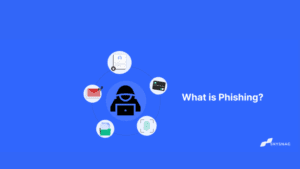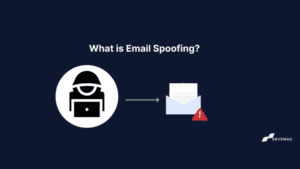DMARC Report Received from Constant Contact: What You Need to Know

Understanding DMARC Reports from Constant Contact
Constant Contact is a widely used email marketing platform that enables businesses to send bulk marketing emails, making it essential to maintain proper email authentication to protect your domain and improve deliverability. DMARC (Domain-based Message Authentication, Reporting & Conformance) reports from Constant Contact offer insights into how recipient servers handle your emails, particularly with respect to SPF and DKIM checks. Monitoring and acting on these reports is crucial for ensuring email security and protecting your domain from spoofing or phishing attacks.
Key Components of Constant Contact DMARC Reports:
1. Source IP Address: This field identifies the IP address that Constant Contact used to send your email. Monitoring this allows you to confirm that emails are being sent from authorized Constant Contact IP addresses, helping prevent unauthorized sources from sending emails on your behalf.
2. DKIM Alignment Results: Shows whether the DKIM signature matches the domain specified in the “From” header. Constant Contact supports DKIM signing, and ensuring proper alignment is crucial for passing DMARC checks.
3. SPF Alignment Results: Verifies if the sending IP from Constant Contact is authorized by your SPF record. SPF alignment ensures that only authorized IPs are allowed to send emails for your domain, preventing spoofing.
4. Disposition: Indicates how the recipient server treated the email—whether it was delivered, quarantined, or rejected—based on your DMARC policy settings.
5. Message Count: Displays the number of emails that met specific criteria and were sent from a particular IP. This helps you monitor large marketing campaigns and identify any suspicious or unauthorized activity.
Automating DMARC Parsing for Constant Contact
Due to the high volume of marketing emails typically sent through Constant Contact, manually parsing DMARC XML reports can be overwhelming. Automating the process with tools like Skysnag allows for better management and quicker responses to issues.
– Data Aggregation Across Providers: Constant Contact DMARC reports can be combined with reports from other email service providers if you’re using multiple platforms. Skysnag aggregates these reports into a single, unified view, giving you comprehensive oversight of all email activity.
– Visualizing Key Metrics: Skysnag transforms the raw DMARC XML data from Constant Contact into visual dashboards that display key metrics like DKIM and SPF pass rates, unauthorized email attempts, and the most active sending IPs. This makes it easier to monitor your marketing campaign’s health and email security in real time.
– Automated Incident Response: Skysnag offers real-time alerts and responses to DMARC failures. If emails sent through Constant Contact fail SPF or DKIM alignment, you will be alerted immediately, allowing you to quickly fix any misconfigurations or block potentially harmful IP addresses.
– Forensic Reporting: Some DMARC reports provide additional forensic data, including full email headers of failed messages. With Constant Contact, this information can help pinpoint why certain emails failed authentication, enabling more precise troubleshooting.
Ensuring Proper DMARC Alignment for Constant Contact
To maximize the effectiveness of DMARC, it’s important to ensure that DKIM and SPF align with the domain used in the “From” header for emails sent through Constant Contact. Misalignment can result in emails being quarantined or rejected, even if they pass other checks. Ensuring proper alignment protects your marketing campaigns from being flagged as suspicious and enhances deliverability.
Skysnag’s Custom Solutions for Constant Contact:
– DKIM Key Management: Skysnag ensures that Constant Contact’s DKIM keys are properly aligned and up-to-date with your domain. Any misalignment or outdated DKIM keys are flagged for quick remediation, ensuring your emails consistently pass DKIM checks.
– SPF Flattening: Using multiple services like Constant Contact can result in complex SPF records, which may hit DNS lookup limits. Skysnag automates SPF flattening, ensuring your SPF records are optimized and preventing DNS lookup issues that could impact email authentication.
– Policy Recommendations: Based on the insights gathered from your Constant Contact DMARC reports, Skysnag can recommend changes to your DMARC policy, such as moving from “none” to stricter enforcement modes like “quarantine” or “reject” to better protect your domain from phishing and spoofing attacks.
By automating DMARC report parsing and providing tailored solutions for Constant Contact, tools like Skysnag help ensure your marketing emails are properly authenticated, securely delivered, and free from potential domain abuse, maximizing both deliverability and domain protection.





